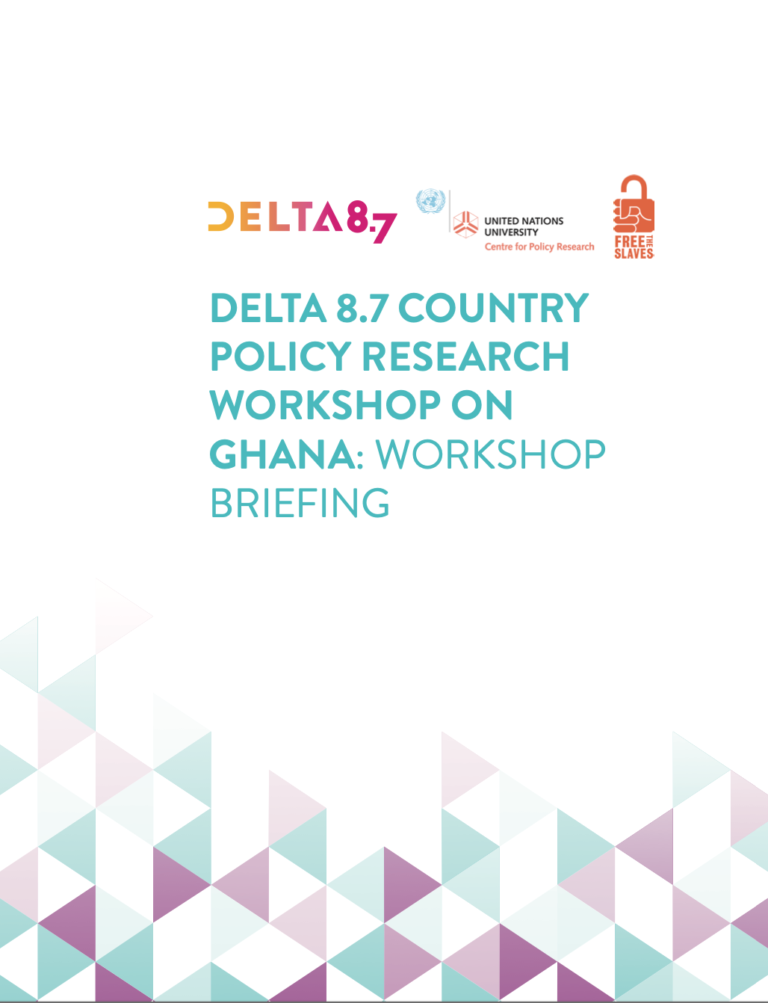Information Brochure for Au Pairs in Austria
Guidance...Read More
On 15 December 2021, the United Nations University Centre for Policy Research project Delta 8.7 hosted a Country Policy Research Workshop. This fourth workshop focused on Ghana, bringing together policymakers from the Ministry of Gender, Children and Social Protection; the Immigration Service, International Organization for Migration, United Nations Office on Drugs and Crime and UNICEF, as well as members of the private sector, civil society and researchers from Ghana and elsewhere for a closed- door discussion of “what works” to combat child labour in Ghana.
Over the last year, UN Member States, regional organizations and civil society have been working to raise awareness on the issue of child labour and share best practices in support of the International Year for the Elimination of Child Labour. As this year ends, and at a time when the Ghanaian Government is strengthening its efforts to combat modern slavery through its commitment as a Pathfinder country and development of a number of new National Plans of Action including for the Elimination of Human Trafficking and Child Labour, this workshop provide an opportune moment to discuss what national policies are needed to accelerate progress towards the elimination of child labour. The workshop comprised five sessions – the themes were identified following in-depth interviews with workshop participants. These themes were:

The Human Rights Council unanimously endorsed the UN Guiding Principles on Business and Human Rights (UNGPs) in 2011. More than 10 years later, this global standard for how business should respect human rights has driven some positive change. While ...Read More
This publication introduces procurement professionals to the key concepts behind ethical procurement and provides practical advice for getting started. It not only addresses procurement specifications, but recognises the importance of how a buyer con...Read More
Modern slavery and its manifestations (including forced labour, debt bondage, money laundering and human trafficking) are illegal practices in all CDC investment geographies. However, such practices remain present, are often intentionally well hidde...Read More